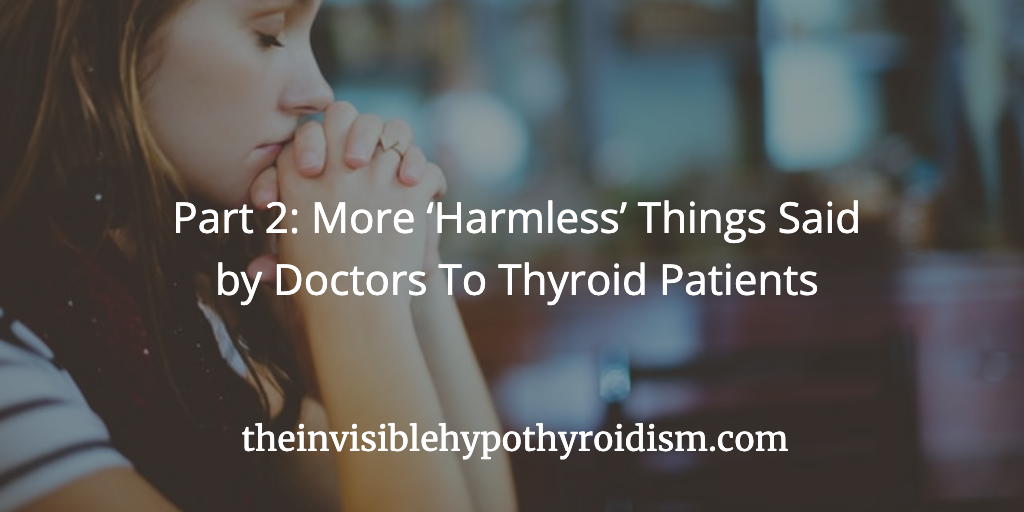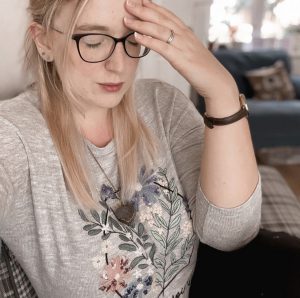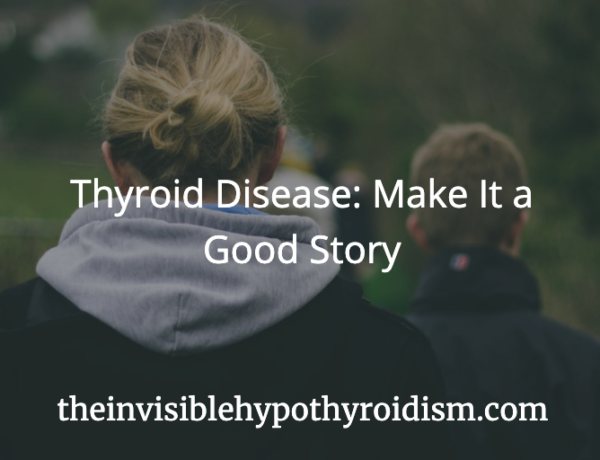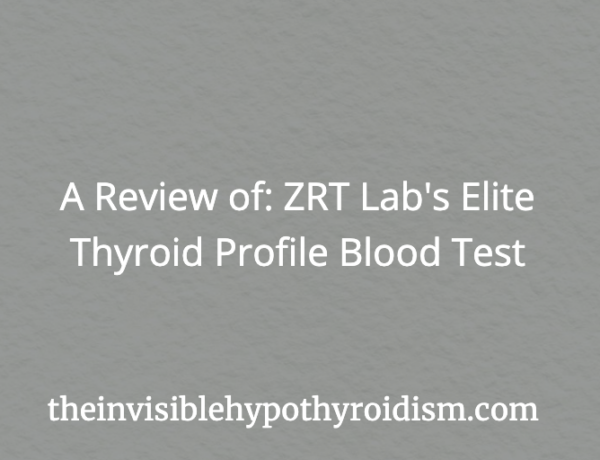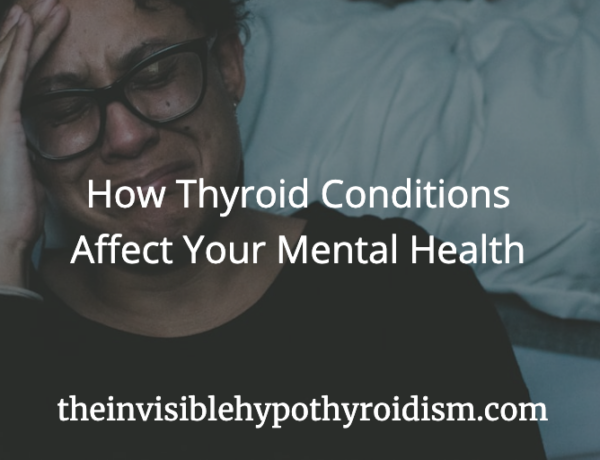A few years ago now, I put together the article 11 ‘Harmless’ Things Said by Doctors That Actually Hurt Thyroid Patients.
Since then, I’ve had a lot of feedback from fellow thyroid patients with even more remarks they’ve received and found unhelpful.
Now, there are doctors out there who are respectful, listen to their patients and don’t belittle them, but as always, there are also some doctors (and more than we’d like) that aren’t so helpful.
They may think that the below comments are helpful advice, a ‘reality check’ or just plain correct, but as people living with thyroid conditions such as hypothyroidism, we know ourselves what it’s really like. And these comments are not helpful.
1. “It’s Easy to Blame Everything on Your Thyroid.”
I’ve heard this one and not just from doctors either, but work colleagues and others around me, too.
It may seem like we’re ‘blaming everything on our thyroid’ and yes, while we should keep an open mind that there can be multiple causes for certain symptoms and complaints, we also can’t ignore that thyroid hormone is required by every cell in the body and impacts so many bodily functions and systems, from heart health to fertility, metabolism, digestive health and even brain function.
Afterall, there are many symptoms of hypothyroidism.
2. “You’re Middle Aged, It’s Normal to Feel Tired.”
Thyroid fatigue is different to ‘normal tired’. When we say we feel fatigued – true thyroid fatigue – it’s not the same as how ‘everyone else feels tired’. We are exhausted and barely able to function.
Assuming someone’s fatigue is down to ‘just getting older’ and not actually checking their thyroid levels, means that a lot of people go undiagnosed and untreated for longer than they should have to.
3. “There Is Nothing More We Can Do.”
There is always more we can do.
Thyroid tests coming back ‘in range’? Try optimising them instead. It can make a world of difference.
Levels optimised but still have ongoing symptoms? Explore other common coexisting issues such as:
- Low vitamin and mineral levels (ferritin, B12, Vitamin D)
- Adrenal issues, PCOS, high cholesterol, Lyme
Other lifestyle areas we can be guided on improving:
- Diet (looking at blood sugar, food sensitivities, alcohol, caffeine,
- Sleep
- Exercise (Exercising enough / not over exercising)
- Other helpful supplements
- Stress management (this can have a bigger impact on how well your thyroid condition is managed than you may think)
- Our work life
- Gut health
There is often more to be done than just taking thyroid medication alone, and if someone is taking thyroid medication yet still feels unwell, then working on these areas can make a big difference.
4. “You Just Need to Get More Sleep.”
This just isn’t how thyroid symptoms work. Believe us, we’ve tried sleeping a lot and we’re not cured of fatigue yet! And if you live with someone with hypothyroidism, you’ve probably noticed how much they sleep and how little difference it seems to make.
We can even wake up and feel more tired than when we went to bed the night before.
Thyroid hormone directly controls and affects energy levels, which means that fatigue is the most commonly complained of symptom. We can be easily fatigued and may even feel tired all the time, scarcely waking up feeling refreshed.
The best way I can describe it is every-second-I’m-consciously-having-to-keep-each-eyelid-open tired. It’s I’m-scared-to-blink-or-I’ll-fall-asleep tired.
Getting a good night’s sleep won’t fix this symptom when it is caused by a condition that impacts your metabolism and thus, how energy is produced.
5. “You Don’t Need Thyroid Antibodies Checking.”
Too many people are left undiagnosed of Hashimoto’s. Since an estimated 90% of us with hypothyroidism also have Hashimoto’s, it’s really useful to have it confirmed (or ruled out). [1]
A lot of conventionally trained doctors don’t see the benefit of confirming whether a patient’s hypothyroidism is caused by Hashimoto’s, as their treatment often remains the same.
However, knowing if your hypothyroidism is autoimmune can affect what treatment and lifestyle changes or other interventions help you to live well with it.
When we have Hashimoto’s, there is often a lot of other work to be done, in terms of calming down the autoimmune response and addressing other parts of the body that often go awry. Getting my Hashimoto’s in to remission formed a big part of recovering my health.
6. “You’re Not Trying Hard Enough.”
Enter the victim blaming.
“You’re not trying hard enough to be positive about this. That’s why you’re depressed.”
“You’re not trying hard enough with therapy to deal with your diagnosis.”
Maybe we feel our medical team isn’t trying hard enough to get to the root cause of ongoing symptoms?
7. “You’re Just Anxious. Stay off the Internet.”
Pinning our physical symptoms on a mental health condition is far from helpful.
Yes, some people do have anxiety alongside their hypothyroidism, but it is not the cause for all lingering symptoms, and hypothyroidism is well-recognised to cause and contribute to mental health effects.
Not investigating whether the thyroid condition is behind the change in mental health and wellbeing, and instead plastering another medication over the top (in the form an anti-anxiety medication for example) just creates a growing list of prescriptions and doesn’t address the root cause.
Also, some doctors don’t see the value of people with health conditions using online forums and support groups. Whilst I do agree that misinformation can be hard to sift through and that for some people, using online forums may increase their anxiety, they are also a major lifeline and source of help and support for many. Each person should be able to decide for themselves, whether they find them helpful.
8. “Changing Your Diet Won’t Make a Difference.”
Conventionally trained doctors are often unaware of the dietary changes many thyroid patients make and feel better for.
These can range from removing caffeine and alcohol from their diet, reducing sugar intake and eating in a way that keeps blood sugar levels more balanced (including more protein and healthy fats for example), to going further by trialling elimination diets, discovering that gluten, dairy, soy or other types of food exacerbate their thyroid symptoms and thus, remove them and feel better for it.
We all know that what we eat can impact how we feel physically, but what makes it tricky is that there is no one diet or way of eating that works for everyone with thyroid issues. Saying this, it is also unhelpful to therefore make a blanket statement that dietary changes help no one at all.
Would you add anything to this list? Let me know in the comments below.
References:
[1] https://www.ncbi.nlm.nih.gov/pubmed/3066320
See also:


